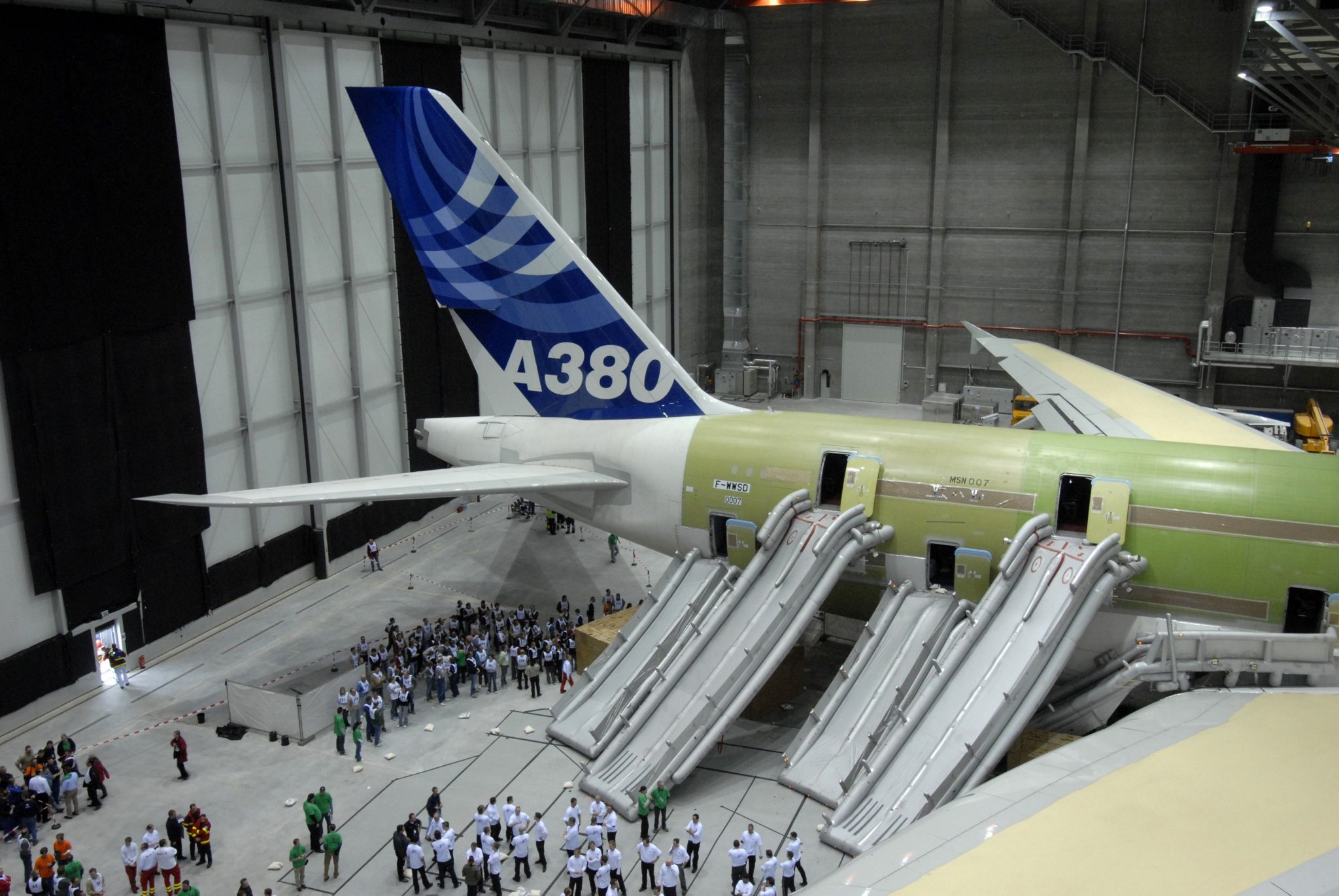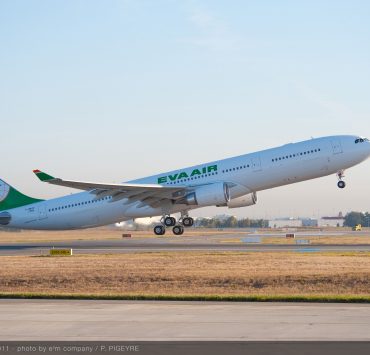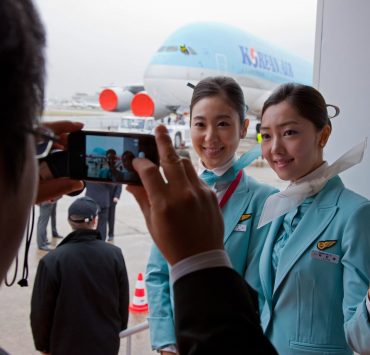
Last Friday, United Airlines suffered what’s known as an ‘inadvertent slide deployment’ at its Chicago hub – or to put it another way, a flight attendant accidentally opened an armed cabin door causing the emergency slide to partially inflate. It’s an expensive mistake that can not only cause delays and put an aircraft out of action but also potentially puts lives at risk.
The reason flight attendants “cross-check” is to make sure a cabin door is either armed or disarmed at the right point yet despite these safeguards, ISD’s as they are sometimes referred, are an issue that every airline has to deal with. Not that long ago, Virgin Atlantic had the same issue at Manchester Airport, although the cases that make the news are just the tip of the iceberg.
This is what an upper deck emergency slide looks like on a Boeing 747-400.
It was deployed in error while technicians were working on the aircraft. Virgin Atlantic #VS75 to Orlando from Manchester was delayed briefly while the slide was replaced/repaired.
📷@beckiegoneeast pic.twitter.com/pnQrAgt94U
— Tom Podolec Aviation (@TomPodolec) September 7, 2018
According to the Association of Flight Attendants (AFA) which represents United’s flight attendants, ISD’s are occurring with “far greater regularity than anyone would like or expect.”
The situation has got so bad that some airlines ban their flight attendants opening cabin doors from the inside – instead, a groundworker is tasked with opening the door from the outside. Cabin doors are designed to automatically disarm when opened from the outside because the fact is that there has to be a jetbridge or stairs attached for anyone to reach the door so the emergency slide is redundant.
But while that simple and nearly error-proof solution works for some airlines, many carriers have more complicated operations that mean flight attendants still need to open cabin doors from the inside.

At this point, flight attendants need to make sure they are switched on and not distracted to avoid making a mistake – but what if the rush to get planes turned around as fast as possible and the push for on-time departures is one of the reasons for these ISD’s?
“We need to have a full discussion about the heavily distracting environment that has been created by management,” AFA says in a new memo. “Unless and until management accepts its responsibility in the creation of this “rush, rush” mentality, our fear is that things will only get worse,” the union warns.
“The message from senior management intended to convey “Safety is our number one priority” is apparently being muted by the noise of quick turns and on-time departures. Arguably, our safety culture is at risk of becoming a “make it work” culture that is fraught with the perils that accompany divergence from standard operating procedures.”
It’s an interesting point that is most definitely not unique to United. The pressure to get planes turned around as fast as possible is present at nearly every airline – flight attendants are expected to get security and safety checks completed within minutes, often with passengers waiting on the jetbridge ready to board and gate agents breathing down the necks of flight attendants in a bid to get everyone on and the cabin doors shut as fast as possible.
While this issue doesn’t just affect United Airline, we reached out to the airline for comment on the concerns raised by AFA. United told us “Nothing is more important to United Airlines than the safety of our customers and employees, which is why we shared a training reminder with all of our flight attendants to help prevent inadvertent slide deployments.”
Mateusz Maszczynski honed his skills as an international flight attendant at the most prominent airline in the Middle East and has been flying throughout the COVID-19 pandemic for a well-known European airline. Matt is passionate about the aviation industry and has become an expert in passenger experience and human-centric stories. Always keeping an ear close to the ground, Matt's industry insights, analysis and news coverage is frequently relied upon by some of the biggest names in journalism.









